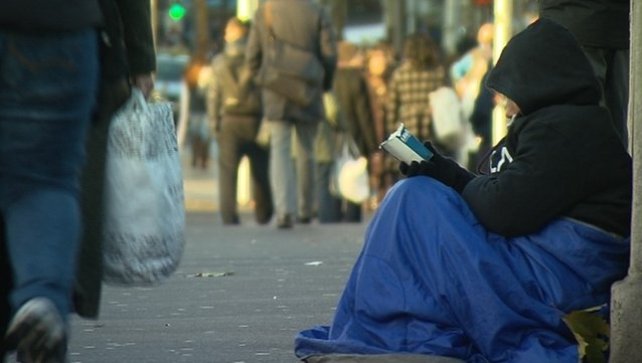
by Alan Jacques

‘Homelessness: An Unhealthy State’, published by the Partnership for Health Equity, takes a look at the health of homeless people in Dublin and Limerick, the first city outside the capital to be included in such a study.
Six homeless services in Limerick including Novas Initiatives’ McGarry House and Brother Russell House participated in the study. The publication also examined a group of homeless men and women from Limerick.
It found that overall mental health was very poor, with more than 50 per cent having a diagnosis of depression and one in three having attempted suicide in the past. In Limerick, some 70 per cent of the group had suicidal thoughts.
Reports of attempted suicide and mental health diagnoses were more common among those under 45 years, women and drug users. There was also an increased level of attempted suicide among those who were long-term homeless.
Dr Patrick O’Donnell, GP and clinical fellow in Social Inclusion said that “the most staggering findings in relation to poor mental health are true for the homeless population I work with in Limerick and should serve as a reminder to all health service providers that this group are particularly vulnerable”.
The report also indicates that smoking is almost universal among the homeless population in Limerick. Alcohol proved to be the most problematic drug, followed by the use of cannabis, street benzodiazepines and heroin. Poly-drug use was the norm, reported by 71 per cent of those engaging in drug use in the services. Fifty per cent of study participants in Limerick were current drug-users, with a slightly higher figure in Dublin.
However, there was positive news also. The report revealed that those residing in homeless accommodation in Limerick had greater access to key-workers and care plans, leading to better outcomes than their Dublin counterparts. The Limerick participants also had greater access to primary health care services.
The report found that the greatest barrier to improved health by the participants was being homeless.
Manager of Novas’ McGarry House, Sinead Carey pointed out that “there was no waiting list in the service on only three days since the start of 2015 and the service has been at capacity every night this year. In our Intensive Family Support service, three families presented as at risk of homelessness on Monday alone.
“These examples are a reflection of the strain on services throughout the city and at a national level, as more people are becoming homeless,” she said.









